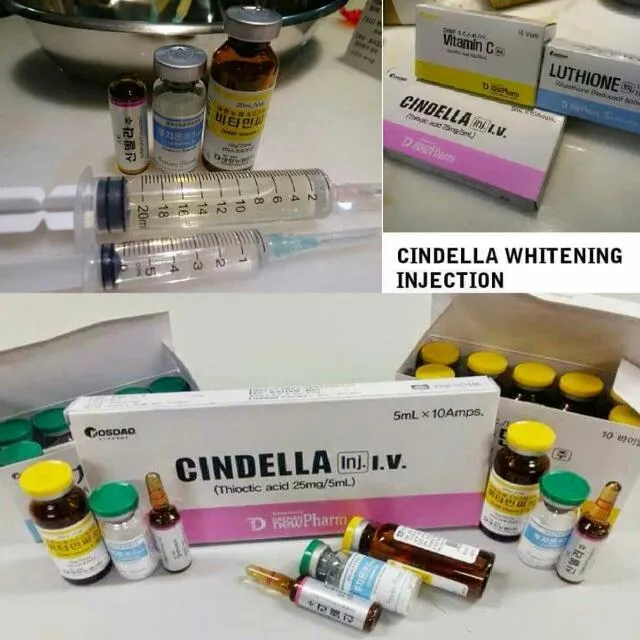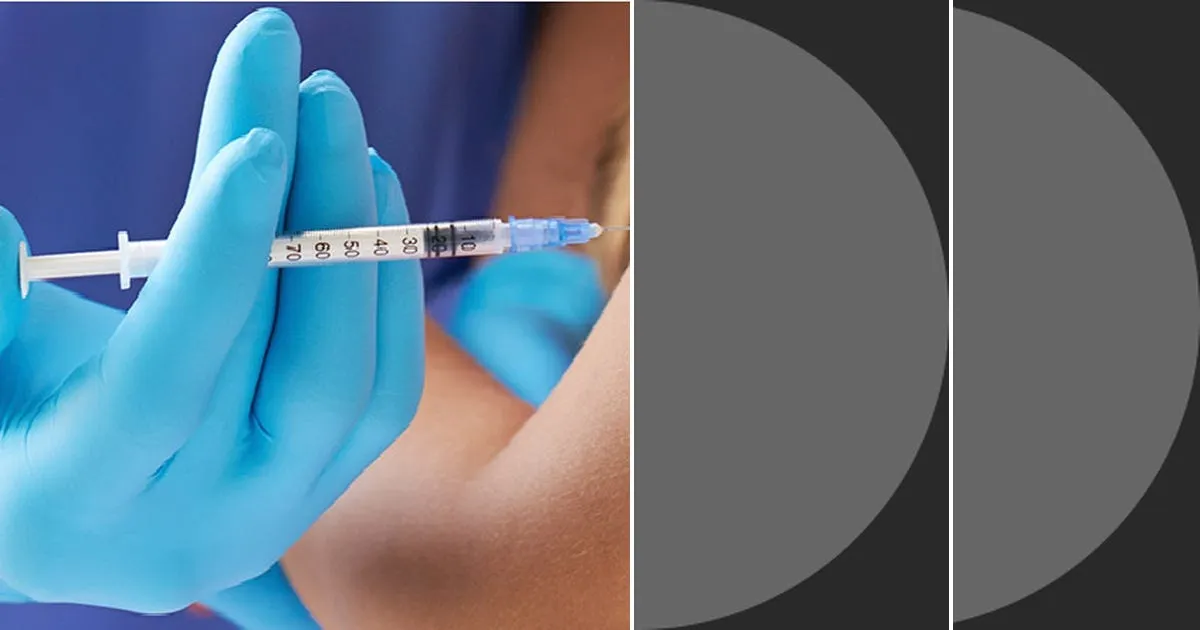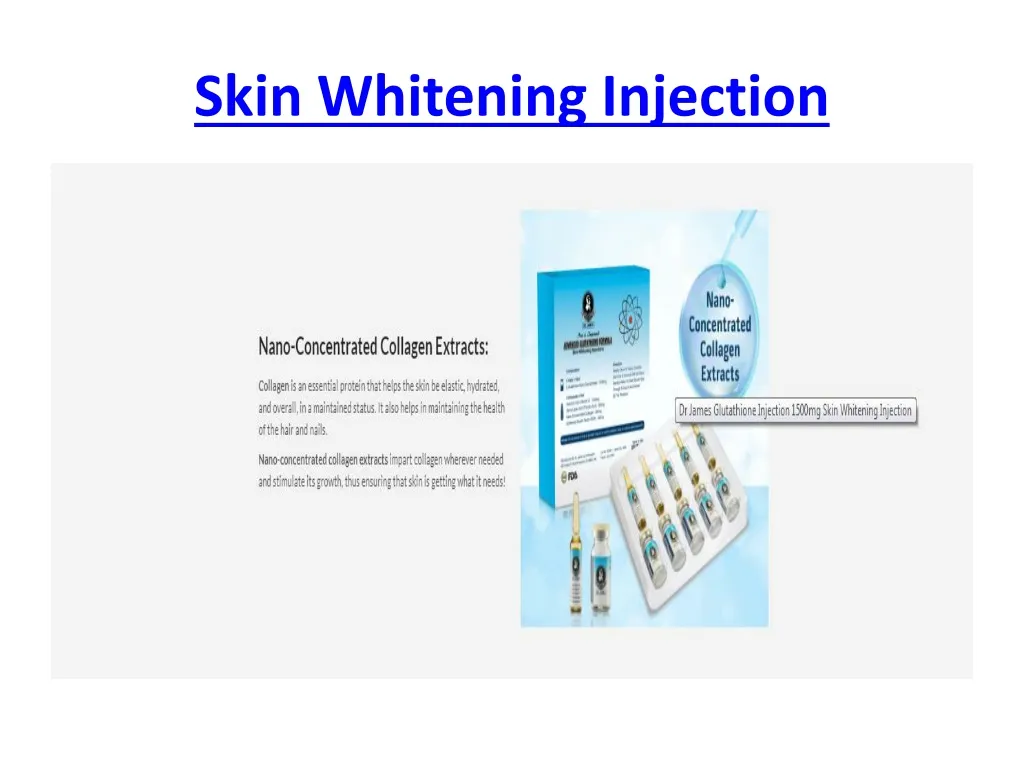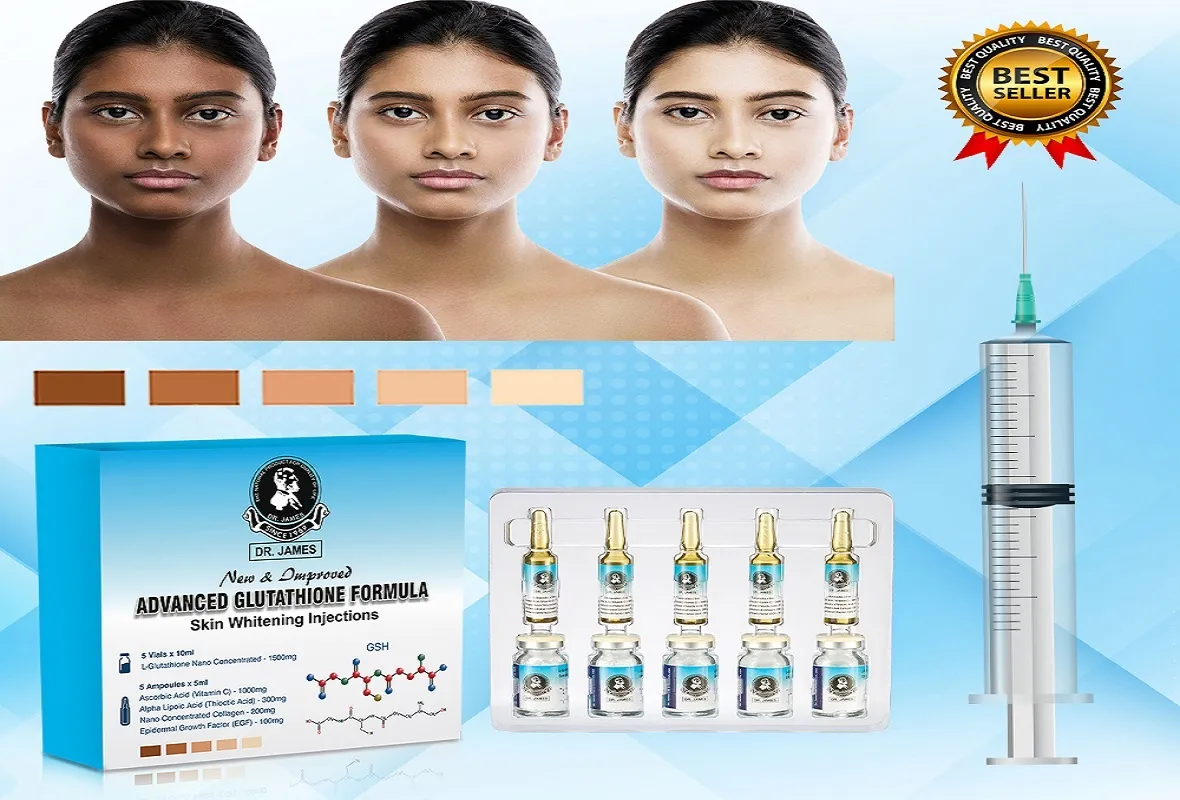What is Whitening Injection?
Whitening injections, also known as skin lightening injections, are cosmetic procedures designed to lighten the skin tone. These injections typically contain substances like glutathione, a powerful antioxidant that inhibits melanin production. Melanin is the pigment responsible for skin color, and by reducing its production, the skin can appear lighter. It’s crucial to understand that whitening injections are not a permanent solution and require maintenance. The effectiveness varies depending on individual skin type, the dosage of the injection, and the frequency of treatments. While marketed for skin lightening, many individuals also seek whitening injections for their supposed antioxidant benefits, aiming for a healthier glow and protection against environmental damage. However, potential risks and side effects should be carefully considered before undergoing this procedure.
How Whitening Injections Work
Whitening injections primarily work by reducing the concentration of melanin in the skin. Glutathione, the main active ingredient, acts as an antioxidant and inhibits tyrosinase, an enzyme that plays a key role in melanin production. By blocking tyrosinase, glutathione reduces the formation of melanin, leading to a lighter skin tone. The glutathione also helps to detoxify the liver and body, which can indirectly lead to skin lightening. The effectiveness of glutathione in whitening injections has been supported by some studies, but the long-term effects and safety are still under investigation. The injections are administered intravenously or intramuscularly, allowing the glutathione to be distributed throughout the body. The effects are usually gradual, with noticeable changes appearing over several weeks or months, depending on the individual and the treatment regimen.
The Benefits of Whitening Injections

Besides the primary goal of skin lightening, whitening injections are also promoted for other benefits. Many users report improvements in skin texture, reduced appearance of dark spots, and an overall radiant complexion. The antioxidant properties of glutathione are believed to protect skin cells from damage caused by free radicals, which can accelerate aging and lead to skin problems. Some individuals experience increased energy levels and improved immune function, although these benefits are not scientifically proven to be directly caused by the injections. The injections can also lead to a reduction in hyperpigmentation caused by sun exposure, acne scars, or other skin conditions. However, it’s crucial to discuss all potential benefits with a qualified healthcare professional to understand the realistic expectations and determine if this treatment is the best option for your needs.
Whitening Injection: Step-by-Step Guide
The process for receiving a whitening injection involves several steps. Firstly, there is a consultation with a qualified healthcare professional who will assess your skin type, medical history, and expectations. If you are a suitable candidate, the healthcare provider will recommend the appropriate dosage and frequency of injections. The injection itself usually involves injecting glutathione intravenously or intramuscularly. The injection is typically administered by a trained healthcare provider in a medical setting, ensuring sterility and proper technique. The frequency of injections varies depending on your skin type, desired results, and the recommendation of the healthcare provider. After the injection, the healthcare provider will provide instructions for aftercare to minimize side effects and maximize results. Follow-up appointments are often scheduled to monitor progress and adjust the treatment plan as needed.
Before Your Whitening Injection
Before undergoing a whitening injection, several important steps are necessary to ensure your safety and the best possible outcome. You should start with a thorough consultation with a qualified healthcare provider. This consultation involves discussing your medical history, any existing skin conditions, and your aesthetic goals. Your provider will assess your skin type and evaluate whether you are a suitable candidate for the procedure. It’s important to disclose any medications you are taking, allergies you have, or any previous cosmetic procedures. During this consultation, you should ask any questions you have and clarify your expectations regarding the results. You might be advised to avoid certain medications or supplements that could interfere with the treatment. Following your healthcare provider’s pre-injection instructions is essential for minimizing risks and preparing your body for the procedure.
Choosing a Qualified Practitioner

Selecting a qualified and experienced practitioner is one of the most crucial aspects of ensuring a safe and effective whitening injection procedure. Always seek a healthcare provider with a valid medical license and extensive experience in administering cosmetic injections. Verify the practitioner’s credentials and check for any certifications or specializations in dermatology or cosmetic procedures. Research the clinic or medical spa where the injections will be performed and read reviews from previous patients to get an idea of the practitioner’s reputation and the quality of their services. During the initial consultation, pay attention to the practitioner’s communication style and their ability to address your concerns and answer your questions clearly. The practitioner should be transparent about the procedure, potential risks, and expected outcomes. Avoid practitioners who make unrealistic promises or pressure you into the procedure without proper assessment and consultation.
The Whitening Injection Procedure
The whitening injection procedure typically involves administering glutathione intravenously or intramuscularly. Intravenous injections are administered directly into a vein, allowing the substance to enter the bloodstream quickly. Intramuscular injections are injected into a muscle. Before the injection, the healthcare provider will clean and sterilize the injection site to prevent infection. The healthcare provider will then insert the needle into the vein or muscle, depending on the chosen method, and administer the glutathione solution. The procedure is usually quick, lasting only a few minutes. You might feel a slight pinch or discomfort at the injection site, but the pain is generally minimal. The dosage and frequency of injections vary depending on the individual’s skin type, desired results, and the healthcare provider’s recommendations. After the injection, the healthcare provider will monitor you for any immediate side effects and provide aftercare instructions.
Aftercare for Whitening Injections
Proper aftercare is vital for minimizing potential side effects and maximizing the effectiveness of your whitening injections. Follow your healthcare provider’s specific instructions diligently. This may include avoiding strenuous activities for a certain period, staying hydrated, and avoiding sun exposure. You should also keep the injection site clean and dry to prevent infection. Applying a cold compress to the injection site can help reduce any swelling or discomfort. Avoid rubbing or scratching the injection area. If you experience any unusual symptoms or side effects, contact your healthcare provider immediately. Regularly scheduled follow-up appointments with your healthcare provider are essential to monitor your progress and address any concerns. Maintaining a healthy lifestyle, including a balanced diet and regular exercise, can support overall skin health and enhance the results of your whitening injections.
Potential Risks and Side Effects

Like any medical procedure, whitening injections carry potential risks and side effects. Common side effects include pain, swelling, and bruising at the injection site. Some individuals may experience flu-like symptoms, such as fatigue, headache, and nausea. More serious risks can include allergic reactions, infections, and potential kidney or liver damage. There is also a risk of uneven skin tone or pigmentation changes. Prolonged use of whitening injections may also affect the body’s natural melanin production, making the skin more vulnerable to sun damage. Before undergoing the procedure, it’s crucial to discuss all potential risks and side effects with your healthcare provider. Ensure that the healthcare provider is using sterile equipment and following proper injection techniques to minimize the risk of complications.
Whitening Injection: Expected Results
The expected results of whitening injections vary depending on several factors, including your skin type, the dosage of the injections, and the frequency of treatments. Many users report a gradual lightening of their skin tone over several weeks or months. The skin may appear brighter, with a reduction in the appearance of dark spots and hyperpigmentation. The overall complexion may become more even. However, it is important to have realistic expectations; whitening injections are not a permanent solution, and maintaining the results requires ongoing treatments. Results may vary, and the extent of skin lightening depends on individual response to the injections. It is essential to discuss your desired results with your healthcare provider and understand that there are no guarantees. Proper sun protection is crucial to maintain the results and prevent further damage to the skin.
Whitening Injection FAQs
Several frequently asked questions (FAQs) arise regarding whitening injections. One common question is about the safety of the procedure, to which the answer lies in the experience of the practitioner and the quality of the products used. Many people are also curious about the potential side effects and how long the results last. It is also common to inquire about the cost of the injections and the number of sessions required to achieve the desired results. Another common question is the difference between glutathione injections and other skin lightening methods, such as topical creams. Finally, many people ask about the ideal candidates for whitening injections and whether the procedure is suitable for them. Always seek advice from a qualified healthcare provider.
How Long Do Results Last?

The longevity of results from whitening injections varies from person to person. Several factors influence the duration, including the individual’s skin type, the frequency of injections, and the dosage. Generally, the effects of whitening injections are not permanent. To maintain the lighter skin tone, regular maintenance treatments are typically required. The results can last for several months, but they may gradually fade over time. Maintaining a healthy lifestyle, protecting your skin from sun exposure, and following your healthcare provider’s recommendations can help prolong the results. The rate at which the results fade also depends on your exposure to sunlight, lifestyle choices, and genetic factors. It’s crucial to discuss the expected longevity of the results with your healthcare provider and to understand that ongoing treatments may be necessary.
Is Whitening Injection Right for You?
Deciding whether whitening injections are right for you involves careful consideration of your individual needs, expectations, and overall health. Before making a decision, consult with a qualified healthcare provider to assess your skin type, medical history, and desired results. The ideal candidates are those seeking to lighten their skin tone, reduce hyperpigmentation, or improve their skin’s overall appearance. However, the procedure might not be suitable for everyone, particularly those with certain medical conditions or allergies. It’s important to have realistic expectations and understand the potential risks and benefits associated with the procedure. Ensure that you are prepared to commit to regular treatments and aftercare. Ultimately, the decision should be based on informed consent and a thorough understanding of the procedure.
Alternatives to Whitening Injections
If you’re considering skin lightening, but are hesitant about whitening injections, several alternatives are available. Topical creams containing ingredients like hydroquinone, retinoids, or vitamin C can help lighten the skin and reduce dark spots, but they typically take longer to produce visible results. Chemical peels and microdermabrasion are other options that exfoliate the skin and promote cell turnover, leading to a brighter complexion. Laser treatments can also be used to target hyperpigmentation and reduce dark spots. Another approach is to use natural remedies, such as lemon juice, turmeric masks, and aloe vera, which may have skin-lightening properties. It’s essential to consult with a dermatologist or skincare professional to determine which alternative is most suitable for your skin type and concerns. The choice should be based on your individual preferences, skin sensitivity, and desired outcomes.
